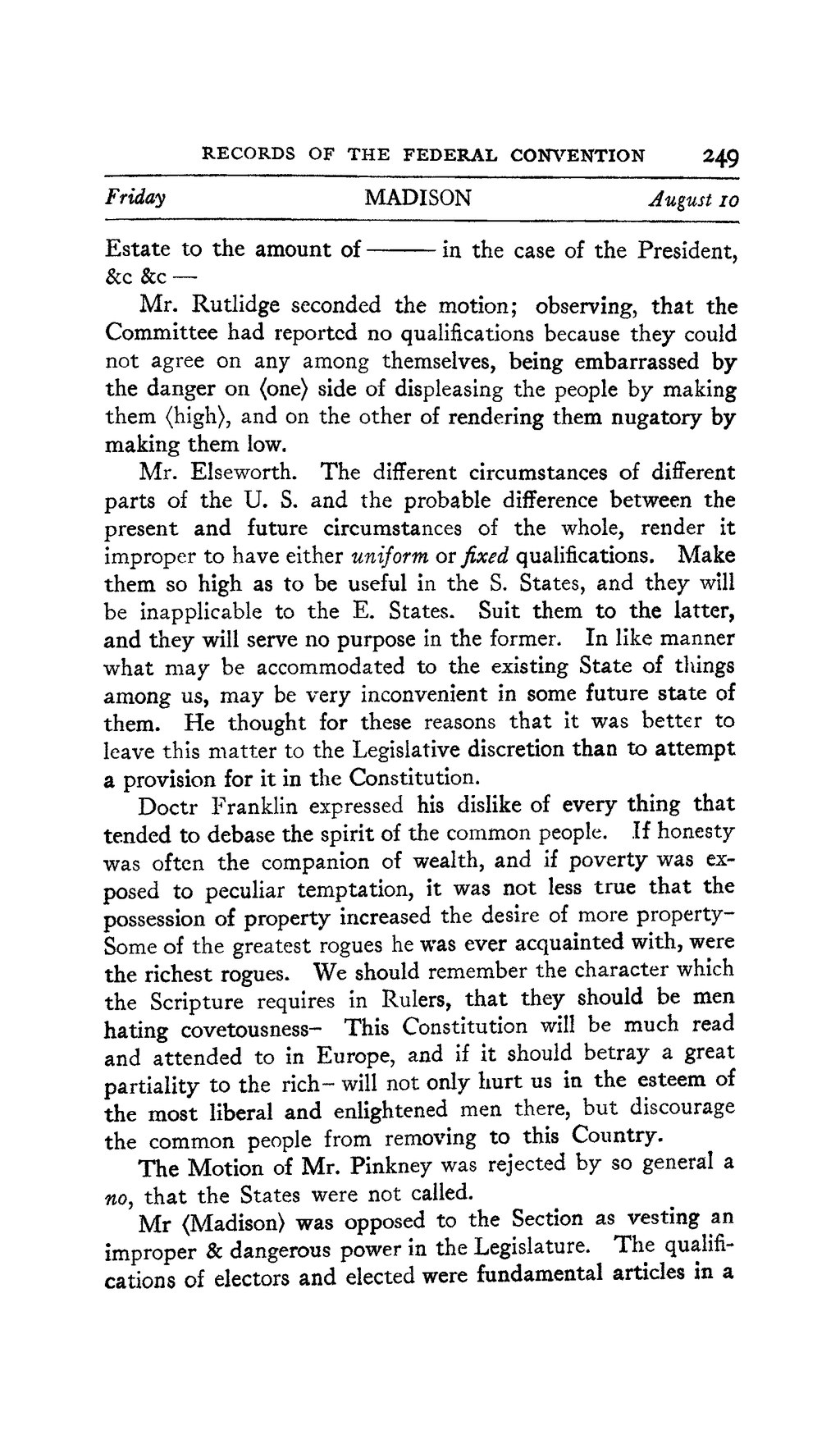P. ECOKDS OF THE FEDERAL CON%rENTION :Z49 Frida:? MADISON .4?gust zo Estate to the amount of in the case of the President, &c &c- Mr. Rutlidge seconded the motion; observing, that the Committee had reported no qualifications because they could not agree on any among themselves, being embarrassed by the danger on (one) side of displeasing the people by making them {high>, and on the other of rendering them nugatory by making them low. Mr. Elseworth. The different circumstances of different parts of the U.S. and the probable difference between the present and future circumstances of the whole, render it improper to have either uniform or fixed qualifications. Make them so high as to be useful in the S. States, and they will be inapplicable to the E. States. Suit them to the latter, and they will serve no purpose in the former. In like manner what may be accommodated to the existing State of things among us, may be very inconvenient in some future state of them. He thought for these reasons that it was better to leave this matter to the Legislative discretion than to attempt a provision for it in the Constitution. Doctr Franklin expressed his dislike of every thing that tended to debase the spirit of the common people. If honesty was often the companion of wealth, and if poverty was ex- posed to peculiar temptation, it was not less true that the possession of property increased the desire of more property- Some o{ the greatest rogues he was ever acquainted with, were the richest rogues. We should remember the character which the Scripture requires in Rulers, that they should be men hating covetousness- This Constitution will be much read and attended to in Europe, and if it should betray a great partiality to the rich- will not only hurt us in the esteem of the most liberal and enlightened men there, but discourage the common people from removing to this Country. The Motion of Mr. Pinkney was rejected by' so general a no, that the States were not called. Mr (Madison) was opposed to the Section as vesting an improper & dangerous power in the Legislature. The qualifi- cations of electors and elected were fundamental articles in a
�
